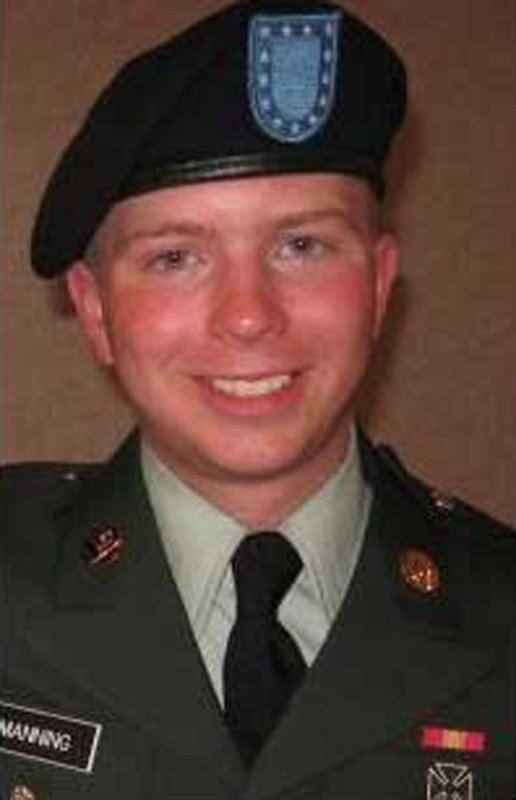U.S. Army PFC Bradley Manning, seen in this undated file photo, is accused of leaking classified information to WikiLeaks. Manning faces a court martial which could land him in prison for life. UPI/File |
License Photo
FORT MEADE, Md., July 10 (UPI) -- The defense rested Wednesday in the court-martial of U.S. Army Pfc. Bradley Manning, accused in the massive release of data to online whistle-blower WikiLeaks.
The final defense witness in the military trial at Fort Meade in Maryland, Harvard Professor Yochai Benkler, testified Manning enriched what he called the "Networked Fourth Estate," Courthouse News Service reported.
Benkler, the final defense witness, said Manning, nor anybody else for that matter, would have had any reason to consider WikiLeaks a terrorist-enabler. He pointed out The New York Times, Britain's The Guardian and Der Spiegel, a German daily, coordinated with WikiLeaks in reporting on the Afghanistan and Iraq war documents.
He called it "a clear distinct component of what in the history of journalism we see as high points, where journalists are able to come in and say, here's a system operating in a way that is obscure to the public and now we're able to shine the light," "That's what WikiLeaks showed how to do for the networked public sphere," Benkler said.
With the conclusion of testimony by witnesses, oral argument will take place next week on Manning's efforts to have several major charges, including aiding the enemy, dismissed. The fate of the enlisted man, who did not testify on his own behalf, will be decided by the presiding judge.
Earlier, prosecutors tried to blunt testimony of a defense witness who said some of the leaked data had no benefit to those bent on harming the United States.
Published as the "Guantanamo Files," the nearly 800 Guantanamo Bay, Cuba, detainee briefs are part of the more than 700,000 files Manning uploaded to WikiLeaks in the largest intelligence leak in U.S. history.
But Col. Morris Davis, who was the military prison's third prosecutor from 2005 to 2007, testified Tuesday he didn't think any suspected terrorist would find the assessment documents useful and compared the assessments to "baseball cards" because of the generalized information they contained, Courthouse News reported.
"Other than causing embarrassment to the country that it was released, I don't see the enemy could have gained any benefit," he said. "If they're trying to achieve some sort of strategic or tactical advantage, the detainee assessment brief is not the place to get it."
Manning gave the anti-secrecy organization WikiLeaks more than 700,000 U.S. intelligence files, videos and diplomatic cables. In February, he pleaded guilty to 10 lesser charges of unauthorized possession, willful communication and improper storage of classified material and could be sentenced to a possible 20 years in prison.
He pleaded not guilty to violating the Espionage and the Computer Fraud and Abuse acts, which carry life sentences. He also pleaded not guilty to larceny, aiding the enemy and improper use of government equipment.
Another defense witness, a security expert from the U.S. Army Intelligence and Security Command, said he could locate through official channels more than 60 percent of battlefield incidents information Manning is charged with disclosing through official channels, Courthouse News said.
Manning's lawyers asked Cassius Hall to review 102 of "significant action" reports Manning is accused of releasing. Hall said he could find 62 of the incidents reported in the public domain.
Prosecutors countered even when an individual report is not sensitive, Manning's release of hundreds of thousands of them could have put troops at risk because enemies could have analyzed them for patterns or weaknesses.
A third defense witness, a security specialist assigned to the defense team, said many of the cables released could be found in the public domain.















